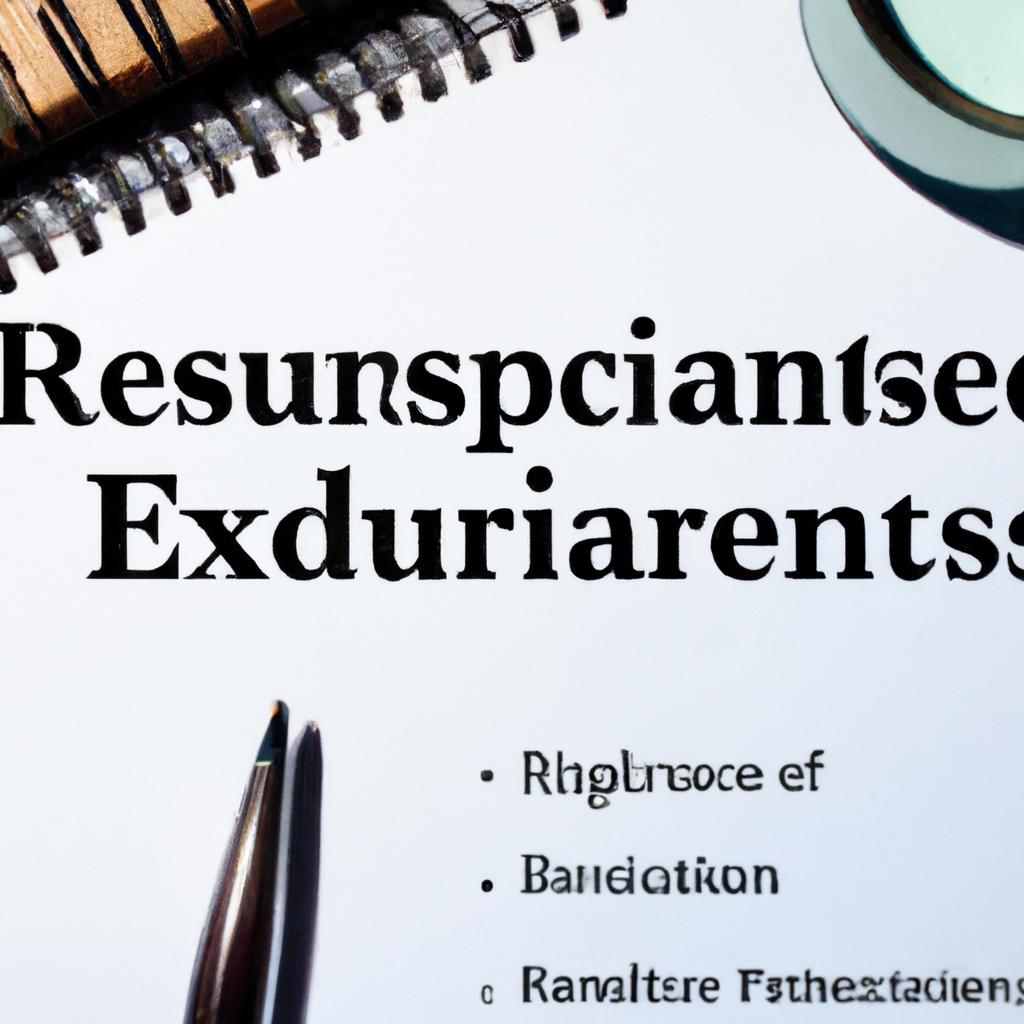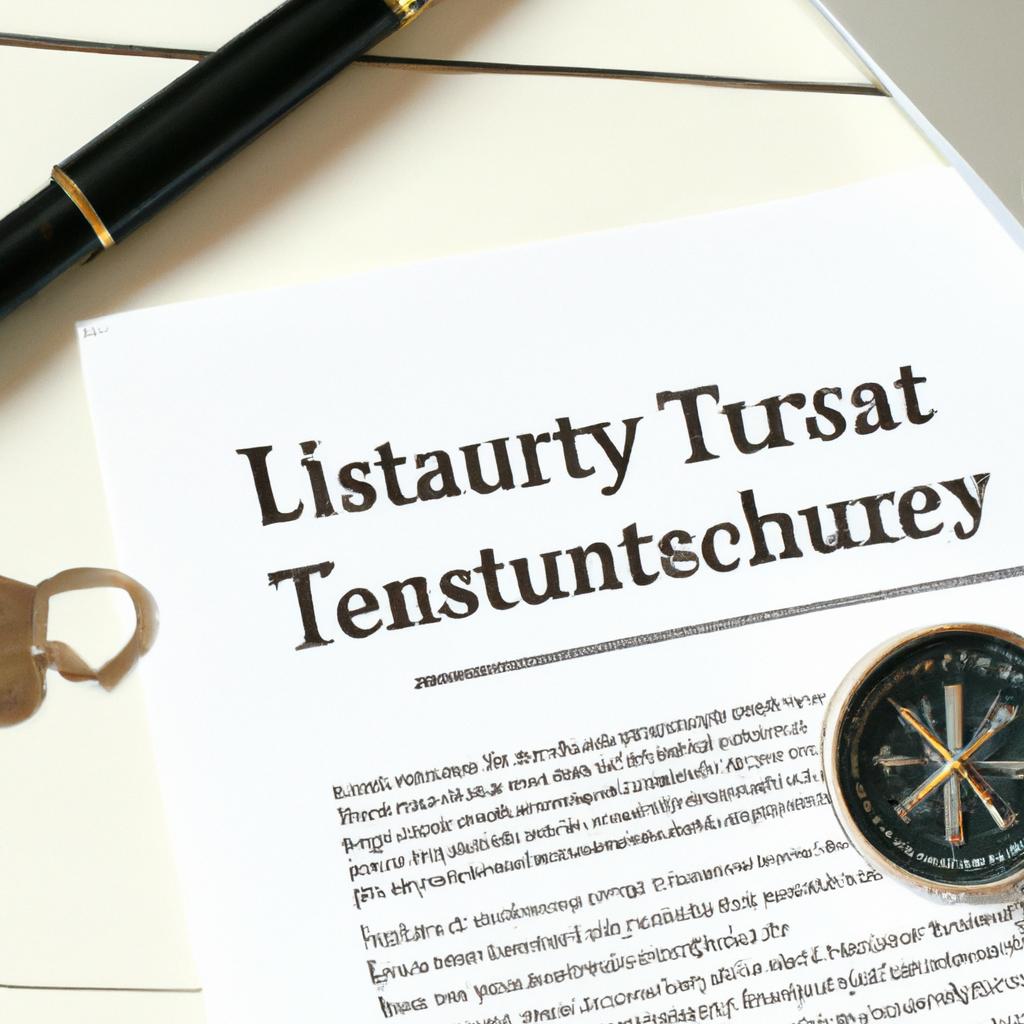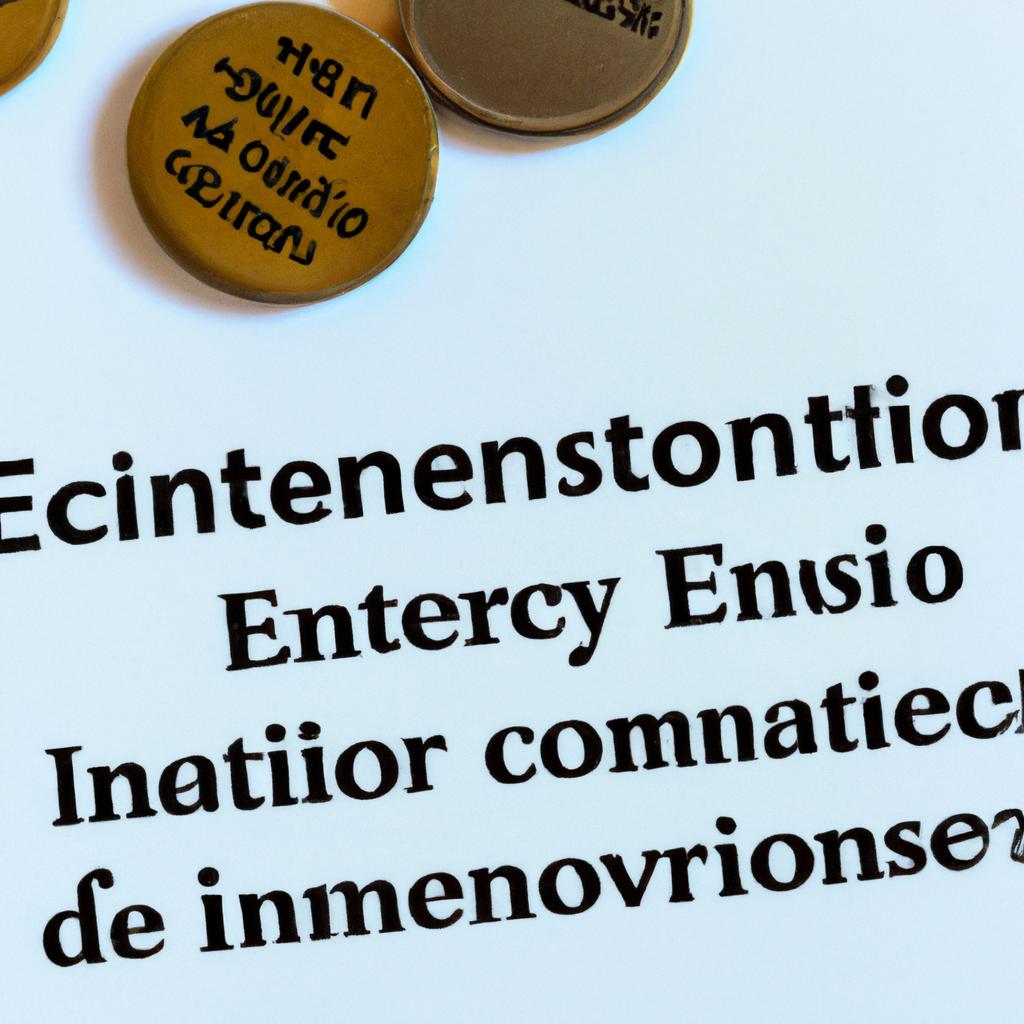As guardians of the legacy and wishes of individuals, trustees play a crucial role in the administration of trusts. The duties of an executor of a trust are multifaceted and require a keen understanding of complex legal and financial matters. In this article, we will delve into the responsibilities and obligations that come with being appointed as an executor of a trust, shedding light on the intricacies involved in managing and distributing assets in accordance with the settlor’s directives. From ensuring compliance with legal requirements to safeguarding the interests of beneficiaries, the role of a trustee is of paramount importance in the realm of estate planning. Join us as we unravel the essential duties of an executor of a trust, providing insights and guidance for those entrusted with this weighty responsibility.
– The Essential Responsibilities of an Executor in Fulfilling Trust Duties
As the executor of a trust, it is crucial to understand and uphold the essential responsibilities that come with fulfilling trust duties. One of the primary duties of an executor is to manage and distribute the assets of the trust in accordance with the terms outlined in the trust document. This includes identifying and appraising all assets, paying off any debts or taxes owed by the trust, and distributing the remaining assets to the beneficiaries.
Additionally, the executor is responsible for ensuring that all necessary legal and financial documents are properly filed and maintained throughout the administration of the trust. This includes keeping accurate records of all transactions, preparing and filing tax returns on behalf of the trust, and providing regular updates to the beneficiaries on the status of the trust. By fulfilling these essential responsibilities with diligence and care, the executor can help safeguard the interests of the trust beneficiaries and ensure that the trust is administered in accordance with the wishes of the grantor.

– Navigating Legal Requirements and Fiduciary Duties as an Executor of a Trust
As an executor of a trust, you are entrusted with a significant responsibility to ensure that the wishes of the trust creator are carried out in accordance with the law. Navigating legal requirements and fiduciary duties as an executor can be a complex and challenging task. It is essential to understand your role and obligations to effectively administer the trust.
One of the key duties of an executor is to act in the best interests of the trust beneficiaries. This involves managing trust assets prudently, making distributions according to the trust terms, and keeping accurate records of all transactions. Additionally, as an executor, you have a duty to communicate with beneficiaries and provide them with information about the trust. It is crucial to seek professional legal advice to ensure that you are fulfilling your fiduciary duties and complying with all legal requirements.

– Ensuring Proper Administration of Trust Assets: Best Practices for Executors
When it comes to fulfilling the duties of an executor of a trust, there are several best practices that must be adhered to in order to ensure the proper administration of trust assets. Executors play a crucial role in managing and distributing trust assets according to the wishes of the grantor, which is why it is essential to follow these guidelines:
- Regular Communication: It is important for executors to maintain open and transparent communication with all beneficiaries of the trust. Providing regular updates on the status of the trust and any significant decisions that are being made can help build trust and prevent potential disputes.
- Documentation: Keeping detailed records of all transactions, expenses, and distributions related to the trust is vital. By maintaining thorough documentation, executors can ensure accountability and transparency in the administration of trust assets.
| Name | Role |
|---|---|
| John Smith | Executor |
| Jane Doe | Beneficiary |

– Key Considerations in Managing Conflicts of Interest and Beneficiary Communication as an Executor
As an executor of a trust, you bear a significant responsibility to manage conflicts of interest and communicate effectively with beneficiaries. One key consideration is to always act in the best interest of the trust and its beneficiaries, putting their needs above your own. This includes avoiding any actions that may result in a conflict of interest or compromise the integrity of the trust.
Effective communication with beneficiaries is essential in ensuring transparency and trust in the administration of the trust. Providing regular updates on the trust’s assets, expenses, and any significant decisions can help alleviate concerns and maintain positive relationships with beneficiaries. It is crucial to be clear and concise in your communications, using plain language that is easy for beneficiaries to understand.
Q&A
Q: What are the main duties of an executor of a trust?
A: The main duties of an executor of a trust include managing the assets of the trust, distributing trust assets according to the terms of the trust, keeping accurate records of all transactions, and acting in the best interests of the beneficiaries.
Q: How does an executor go about managing the assets of a trust?
A: An executor must carefully review the terms of the trust to understand how the assets are to be managed. They must also keep track of all income and expenses related to the trust, make investment decisions, and ensure that the assets are protected and secure.
Q: What are some common challenges faced by executors of trusts?
A: Some common challenges faced by executors include dealing with complex legal and financial matters, communicating effectively with beneficiaries, and navigating potential conflicts of interest. Executors may also face challenges related to managing trust assets in a volatile market or dealing with difficult beneficiaries.
Q: How can an executor ensure that they are fulfilling their duties effectively?
A: Executors can ensure that they are fulfilling their duties effectively by seeking advice from professionals, such as attorneys or financial advisors, when needed. They should also keep detailed records of all transactions and communications related to the trust, and communicate regularly with beneficiaries to keep them informed of the trust’s status.
Q: What are the potential consequences of failing to fulfill the duties of an executor of a trust?
A: Failing to fulfill the duties of an executor of a trust can have serious legal and financial consequences. Executors who do not properly manage trust assets or distribute them in accordance with the terms of the trust may be held personally liable for any losses incurred by the beneficiaries. Additionally, beneficiaries may take legal action against an executor who fails to fulfill their duties.
To Conclude
In conclusion, serving as the executor of a trust carries with it a range of important duties and responsibilities. From managing assets to carrying out the wishes of the trust creator, this role requires a careful attention to detail and a commitment to acting in the best interests of the beneficiaries. By fulfilling these obligations with diligence and integrity, an executor can help ensure that the trust operates smoothly and effectively for the benefit of all involved. Trustee duties may vary depending on the specific terms of the trust, but one thing remains consistent: the importance of carrying out these duties with care and competence. As you navigate the complexities of trust administration, remember that you are not alone – seek guidance from legal and financial professionals as needed, and approach your role with a sense of dedication and responsibility. By doing so, you can help to safeguard the legacy and intentions of the trust creator for years to come.
 Title: Executor of a Trust Duties: Understanding the Role and Responsibilities
Title: Executor of a Trust Duties: Understanding the Role and Responsibilities
Meta Title: A Comprehensive Guide to Understanding the Duties of an Executor of a Trust
Meta Description: Learn all about the role of an executor of a trust, their duties, and the benefits of having one for your estate planning. Discover essential tips and practical advice for choosing the right executor and ensuring they fulfill their responsibilities effectively.
As you plan for your future and the future of your loved ones, you may have come across the term “executor of a trust.” This is an important and often overlooked role in estate planning that carries significant responsibilities. Whether you are considering naming an executor for your trust or have been chosen as one yourself, it is crucial to understand the duties and obligations that come with this role. This article aims to provide a comprehensive guide to help you understand the role of an executor of a trust, their duties, and the importance of choosing the right person for the job.
What is an Executor of a Trust?
Before we dive into the duties of an executor of a trust, let’s first define what it means to be one. An executor of a trust is a person or institution chosen to manage and carry out the provisions of a trust after the trustor’s death. A trust is a legal arrangement where a person, known as the trustor, transfers their assets and properties to a trustee to manage and distribute to designated beneficiaries. The trustee is responsible for holding and managing the assets on behalf of the beneficiaries. The executor of a trust is responsible for overseeing and ensuring that the trustor’s wishes are fulfilled and that the trustee acts in the beneficiaries’ best interests.
What are the Duties of an Executor of a Trust?
Being an executor of a trust is a significant responsibility that involves various tasks and duties. The specific duties may vary depending on the type of trust and the trustor’s wishes, but some general responsibilities remain consistent. Here are some of the most common duties of an executor of a trust:
1. Administer the Trust
The executor of a trust is responsible for administering the trust once the trustor has passed away. This includes gathering, protecting, and managing all assets held in the trust, including investments, bank accounts, properties, and personal belongings.
2. Notify Beneficiaries and Creditors
Once the trustor passes away, the executor must inform all the beneficiaries mentioned in the trust document and any potential creditors. The executor must also publish a legal notice to alert any unknown creditors to come forward, allowing them to make a claim against the trust if necessary.
3. Prepare and File Taxes
The executor of a trust is responsible for preparing and filing tax returns for the trust, including income, estate, and inheritance taxes. This is a critical aspect of the executor’s duties, as any tax issues can have severe legal consequences.
4. Pay Debts and Expenses
The executor must pay any outstanding debts and expenses owed by the trust using the trust’s assets. This includes funeral and burial expenses, creditor claims, taxes, and fees associated with the trust’s administration.
5. Distribute Trust Assets
Once all the trust’s debts and expenses have been settled, the executor is responsible for distributing the remaining assets to the beneficiaries according to the trustor’s wishes. The executor must also keep accurate records of all distributions made to beneficiaries.
6. Handle Legal Proceedings
In case of any legal challenges or disputes, the executor must handle them on behalf of the trust. This may involve hiring legal counsel and attending court proceedings to resolve the issue in a timely and efficient manner.
Benefits of Having an Executor of a Trust
While it is not required by law to name an executor for your trust, it is highly recommended to have one in place. An executor can provide many benefits and can make the trust administration process much smoother for your loved ones. Here are some advantages of having an executor of a trust:
1. Ensures Compliance with Legal Requirements
An executor of a trust is responsible for following all legal requirements and ensuring that the trust’s administration is carried out within the boundaries of the law. This can help avoid legal disputes and potential challenges to the trust.
2. Impartial Decision-Making
Having a third party, such as an executor, manage the trust’s assets can help avoid family conflicts and ensure impartial decision-making. This can be especially useful in blended families or situations where there is a possibility of dispute among beneficiaries.
3. Expertise and Guidance
An executor of a trust is usually a trusted individual with expertise in estate planning and trust administration. They can provide valuable guidance and advice in completing legal and financial requirements to fulfill the trustor’s wishes.
Tips for Choosing the Right Executor of a Trust
Choosing the right executor of a trust is crucial as they will have a significant impact on the trust administration process. Here are some tips to consider when making this important decision:
1. Choose Someone You Trust
The most crucial factor in choosing an executor is to pick someone you trust and who will carry out your wishes according to your best interests.
2. Consider Their Capabilities
The executor must be capable of handling financial and legal matters and have a thorough understanding of your estate plan and trust’s provisions.
3. Have a Backup Plan
It is always a good idea to have a backup executor in case your primary executor is unable or unwilling to fulfill their duties.
In conclusion, the executor of a trust is a critical role in ensuring that your estate plan and trust are carried out according to your wishes. It is essential to choose the right person for the job and have a clear understanding of their duties and responsibilities. By understanding the role of an executor and taking the necessary steps to choose the right one, you can have peace of mind knowing that your estate will be managed and distributed properly after your passing.











